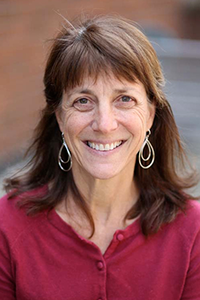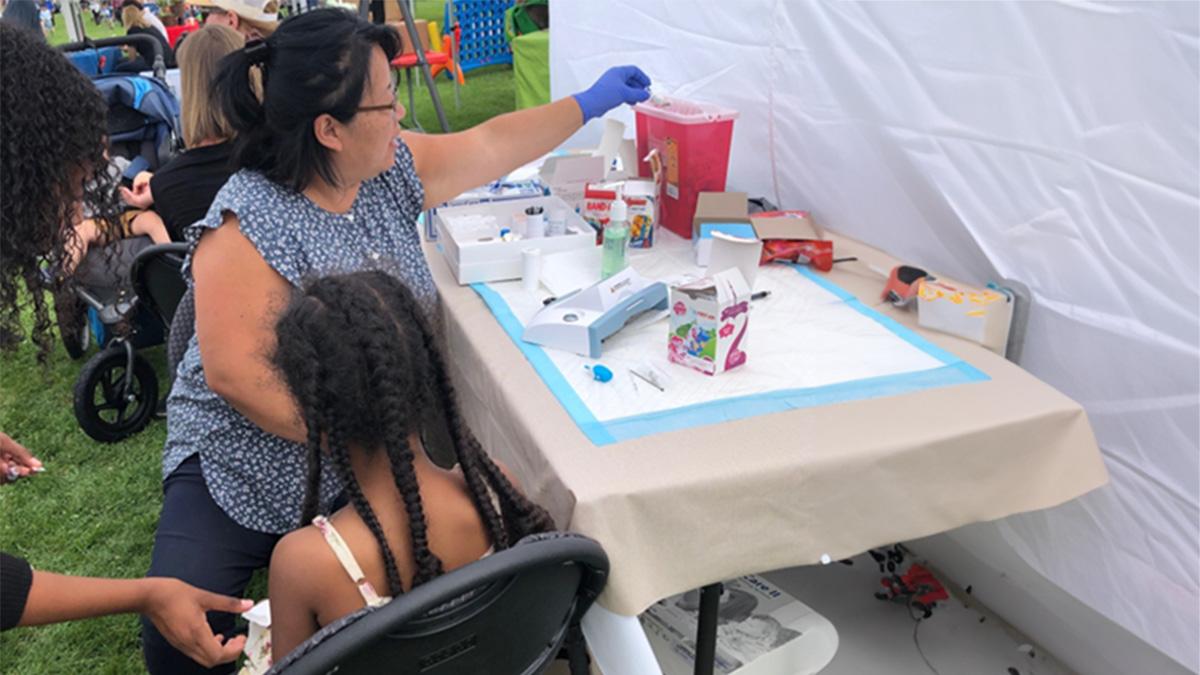Dr. Catherine Karr completed years of specialty training in pediatrics and can’t recall ever being taught about the issue of lead poisoning, which causes neurodevelopmental issues in children.

Yet national studies suggest more than half of US children have detectable levels of lead in their blood, a finding associated with poverty, race and living in older housing where lead-based paint may have been used.
A simple blood test can detect high lead levels in the body, but testing rates are low in King County and across the country.
A new $900,000 grant to the UW Pediatric Environmental Health Specialty Unit (PEHSU) team, led by Karr, aims to help increase blood lead testing in children throughout King County.
The three-year funding comes from Best Starts for Kids, a King County initiative to improve child health. PEHSU is part of the UW Department of Environmental & Occupational Health Sciences.
“I see the potential for this to really move the needle on lead screening in King County,” Karr said.
Educating health care providers and communities
The project, called Better Access to Blood Lead Evaluation for Kids, will have two parts. The first involves working with health care providers to increase lead screening during routine well-child visits.

PEHSU will help educate providers about lead screening guidelines and work with them to remove barriers to testing “to make it easy and natural in the flow of their clinical work to identify kids who should have a lead test,” Karr said.
PEHSU will collaborate with five UW medical clinics, including Harborview, Kent/Des Moines, Roosevelt, Shoreline and Woodinville, in a “learning collaborative” model.
The second part will make lead testing available to communities through outreach events where children can get a test on the spot.
Fourteen such events are planned over the next three years in partnership with the Somali Health Board and the Urban League of Metropolitan Seattle.
Both organizations are key partners with expertise in creating outreach events that are meaningful and impactful in each of their communities, said DEOHS Clinical Assistant Professor Esther Min, a member of the project team. “We are fortunate and grateful for them in lending their expertise to enrich this project.”
Lead in cookware, cosmetics
In addition to lead-based paint, other sources of lead are of growing concern, including lead in some imported products, such as aluminum cooking pots, spices, and pottery for storing food and cosmetics.
“We have this impression in the West that lead isn’t a problem here,” Karr said. With limited testing going on, it is hard to know the extent of the issue.
Detecting lead poisoning early in young children is essential to prevent lasting damage to their health, including behavioral problems such as poor attention and learning problems, she said.




